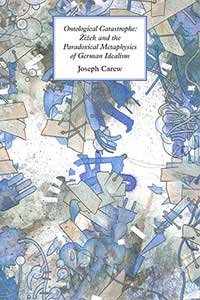Ontological Catastrophe: Žižek and the Paradoxical Metaphysics of German Idealism
by Joseph Carew

- New Metaphysics
- Published: 2014
- ISBN: 978-1-60785-204-9
In Ontological Catastrophe, Joseph Carew takes up the central question guiding Slavoj Žižek’s philosophy: How could something like phenomenal reality emerge out of the meaninglessness of the Real? Carefully reconstructing and expanding upon his controversial reactualization of German Idealism, Carew argues that Žižek offers us an original, but perhaps terrifying, response: experience is possible only if we presuppose a prior moment of breakdown as the ontogenetic basis of subjectivity. Drawing upon resources found in Žižek, Lacanian psychoanalysis, and post-Kantian philosophy, Carew thus develops a new critical metaphysics—a metaphysics which is a variation upon the late German Idealist theme of balancing system and freedom, realism and idealism, in a single, self-reflexive theoretical construct—that challenges our understanding of nature, culture, and the ultimate structure of reality.
Author Bio
Joseph Carew is completing his PhD at McGill University. His current work focuses primarily on German Idealism with an emphasis upon the conceptual possibilities and challenges it presents for contemporary philosophy.
Series Design
The New Metaphysics series design is by Katherine Gillieson with cover illustrations by Tammy Lu
